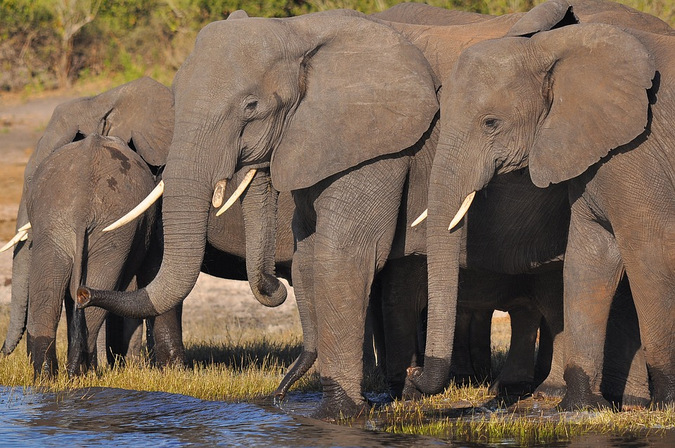
Credit: Eric Isselee / Shutterstock.com
If you think there's no way a huge elephant could fear a mouse, you'd be correct ... sort of.
From the movie "Dumbo" to Saturday morning cartoons, the image of an elephant cowering from a minuscule mouse is pretty well established. But the elephant's fear has more to do with the element of surprise than the mouse itself.
Theories abound that elephants are afraid of mice because the tiny creatures nibble on their feet or can climb up into their trunks. However, there's no evidence to back up either of those claims.
The mouse-in-the-trunk myth, for example, seems to date back centuries to the ancient Greeks, who reportedly told fables about a mouse that climbed into an elephant's trunk and drove it crazy. Some have said the claim started with Pliny the Elder in A.D. 77, as reported by Discovery's Myth Busters.
"I think the myth arose by the idea of the mouse crawling up the elephant's trunk and nostrils — but that is absurd because the elephant could easily simply blow and eject the mouse," said elephant expert Richard Lair, who has researched elephants for 30 years, published multiple studies on their behaviour and is an international adviser to the Thai Elephant Conservation Center. "And that's in the very unlikely case that the mouse could [make it up the elephant's nostrils] anyway."
It's more likely that elephants, which have relatively poor eyesight, simply become startled when mice dart past.
"In the wild, anything that suddenly runs or slithers by an elephant can spook it," said Josh Plotnik, a researcher of elephant behaviour and intelligence at the University of Cambridge in England "It doesn't have to be a mouse — dogs, cats, snakes or any animal that makes sudden movements by an elephant's feet can startle it."
John Hutchinson, a researcher at the structure and motion lab of the Royal Veterinary College in London, agreed: "Elephants get a bit nervous sometimes when small, fast animals are around them," he said. "I can remember one occasion when a local dog in Thailand was running around while we were working with an elephant for our locomotor studies. The elephant really did not like the barking, sprinting animal around it, especially when it couldn't see where the dog was. The elephant panicked, running off into the nearby jungle."
ABC's 20/20 conducted a test with trained elephants at Ringling Bros. and Barnum & Bailey Circus in 2006. A reporter and the circus elephant's trainer held mice in their hands and showed them to several elephants; apparently the elephants "only looked bored" and "not one of them seemed to care much." That may have been because the mice were held up for the elephants to clearly see in the reporter's and trainer's hands, instead of being set loose to race around the elephants' feet.
So rather than being afraid of the mouse itself, an elephant is most likely just surprised by its quick, frantic movements. "But the same is true for most animals," Plotnik said.
Elephants are not scared of mice as some myth suggests however they are scared of ants and bees
Editor's Note: This article was first published in 2011 and was updated in 2016.
Source:
Article shortened and curated from Livescience



